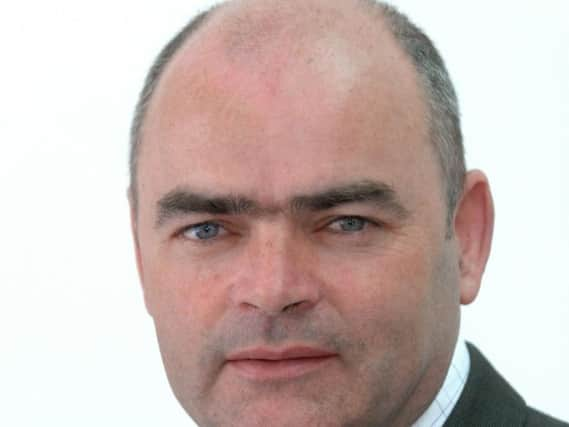Swinney's school overhaul comes under fire


A summit, of council heads, teaching leaders and union chiefs in Edinburgh today heard concerns that the Education secretary's proposals could see schools shifted away from the control of local councils and leave head-teachers facing increased bureaucracy.
Ministers are to provide an extra £100 million of funds direct to headteachers so help address specific problems such as a lack of staff. Schools would also be moved into regional clusters as part of drive to reduce the educational inequalities between affluent and poorer areas of the country.
Advertisement
Hide AdAdvertisement
Hide AdBut it has prompted concerns over "centralisation" of education services by ministers in Edinburgh, which is currently run locally by councils.
Larry Flanagan, head of teaching union the EIS, said after today's meeting: "It would be an absolute folly to have any kind of structural re-organisation of Scottish education at a time of reduced resources because it would be distracting attention from what's important which is how you support schools and the impact on teaching and learning."
He said: "The notion that headteachers are accountants in terms of running major budgets is fanciful.
"We certainly have a very clear view that in terms of hiring and firing of teachers, in terms of maintaining buildings that is a direct function for local authorities."
"In our our discussions with John Swinney we've been very clear that while we welcome direct money to schools, the issues around that are to do with the level of funding."
The union chief warned against additional workload responsibilities for headteachers, including the prospect of teachers being made legally responsible for pupils' education under new legislation.
There are growing fears that the proposals will increase red tape and distract from efforts to close the attainment gap that sees pupils from wealthier backgrounds outperform their poorer counterparts.
Nicola Sturgeon has said improving education is her top priority in government and has staked her personal reputation on closing the schooling gap between the rich and poor.
Advertisement
Hide AdAdvertisement
Hide AdStephanie Primrose, Cosla's education spokeswoman, said after today's meeting that councils back the Scottish Government's aim of driving down the attainment gap between different parts of the country.
But she said: "We are concerned that these proposals will not lead to the results that we all want to achieve.
"We all have the same aspirations for our young people, their families and carers."
She added: "Without the local links and connected services, the outcomes for those disadvantaged could worsen."
Cosla President David O'Neill warned against SNP minister acting as a "sole voice in this crucial debate."
He added: "All other voices are giving them a different message."
Mr O'Neill insisted that councils are already moving to tackle the impact of poverty on the lives of Scotland's pupils.
"I want to make sure that we do always improve but we do not improve by simply centralising and taking powers from communities."
Advertisement
Hide AdAdvertisement
Hide AdThe move to give legal responsibility for raising standards to schools is supposed to encourage decision-making by those who are best placed to know what their catchment areas require and is broadly supported by the Conservatives. However, local authorities are concerned that their role as education providers will be bypassed, removing a crucial layer of accountability from the system.
A Scottish Government spokeswoman said the new funding comes on top of the £250 million already invested through its Attainment Scotland Fund over the next five years.
She added: "It will be for schools themselves to decide how to use the funding to raise attainment. This is a firm priority for this government and we have a clear mandate to take this action.“No council will be financially worse off as a result of these reforms. They will ensure local authorities continue to be properly funded while giving them more accountability as they will have the discretion to increase tax by up to 3%. Any council choosing to increase council tax will keep all additional revenues from that tax rise.“It is important that more decisions about the life of schools are driven by the teachers and parents because we know that where this is the case, schools perform better. That’s why we are launching a governance review in September which will devolve decision making and funding to schools."